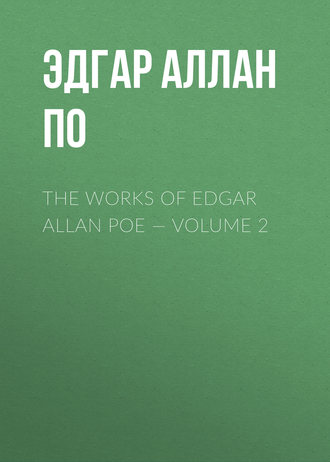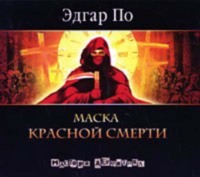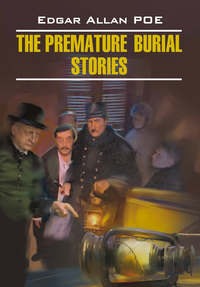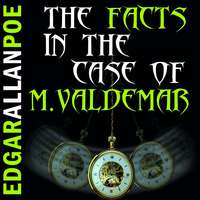 полная версия
полная версияThe Works of Edgar Allan Poe — Volume 2
An appeal to one’s own heart is, after all, the best reply to the sophistry just noticed. No one who trustingly consults and thoroughly questions his own soul, will be disposed to deny the entire radicalness of the propensity in question. It is not more incomprehensible than distinctive. There lives no man who at some period has not been tormented, for example, by an earnest desire to tantalize a listener by circumlocution. The speaker is aware that he displeases; he has every intention to please, he is usually curt, precise, and clear, the most laconic and luminous language is struggling for utterance upon his tongue, it is only with difficulty that he restrains himself from giving it flow; he dreads and deprecates the anger of him whom he addresses; yet, the thought strikes him, that by certain involutions and parentheses this anger may be engendered. That single thought is enough. The impulse increases to a wish, the wish to a desire, the desire to an uncontrollable longing, and the longing (to the deep regret and mortification of the speaker, and in defiance of all consequences) is indulged.
We have a task before us which must be speedily performed. We know that it will be ruinous to make delay. The most important crisis of our life calls, trumpet-tongued, for immediate energy and action. We glow, we are consumed with eagerness to commence the work, with the anticipation of whose glorious result our whole souls are on fire. It must, it shall be undertaken to-day, and yet we put it off until to-morrow, and why? There is no answer, except that we feel perverse, using the word with no comprehension of the principle. To-morrow arrives, and with it a more impatient anxiety to do our duty, but with this very increase of anxiety arrives, also, a nameless, a positively fearful, because unfathomable, craving for delay. This craving gathers strength as the moments fly. The last hour for action is at hand. We tremble with the violence of the conflict within us, — of the definite with the indefinite — of the substance with the shadow. But, if the contest have proceeded thus far, it is the shadow which prevails, — we struggle in vain. The clock strikes, and is the knell of our welfare. At the same time, it is the chanticleer — note to the ghost that has so long overawed us. It flies — it disappears — we are free. The old energy returns. We will labor now. Alas, it is too late!
We stand upon the brink of a precipice. We peer into the abyss — we grow sick and dizzy. Our first impulse is to shrink from the danger. Unaccountably we remain. By slow degrees our sickness and dizziness and horror become merged in a cloud of unnamable feeling. By gradations, still more imperceptible, this cloud assumes shape, as did the vapor from the bottle out of which arose the genius in the Arabian Nights. But out of this our cloud upon the precipice’s edge, there grows into palpability, a shape, far more terrible than any genius or any demon of a tale, and yet it is but a thought, although a fearful one, and one which chills the very marrow of our bones with the fierceness of the delight of its horror. It is merely the idea of what would be our sensations during the sweeping precipitancy of a fall from such a height. And this fall — this rushing annihilation — for the very reason that it involves that one most ghastly and loathsome of all the most ghastly and loathsome images of death and suffering which have ever presented themselves to our imagination — for this very cause do we now the most vividly desire it. And because our reason violently deters us from the brink, therefore do we the most impetuously approach it. There is no passion in nature so demoniacally impatient, as that of him who, shuddering upon the edge of a precipice, thus meditates a Plunge. To indulge, for a moment, in any attempt at thought, is to be inevitably lost; for reflection but urges us to forbear, and therefore it is, I say, that we cannot. If there be no friendly arm to check us, or if we fail in a sudden effort to prostrate ourselves backward from the abyss, we plunge, and are destroyed.
Examine these similar actions as we will, we shall find them resulting solely from the spirit of the Perverse. We perpetrate them because we feel that we should not. Beyond or behind this there is no intelligible principle; and we might, indeed, deem this perverseness a direct instigation of the Arch-Fiend, were it not occasionally known to operate in furtherance of good.
I have said thus much, that in some measure I may answer your question, that I may explain to you why I am here, that I may assign to you something that shall have at least the faint aspect of a cause for my wearing these fetters, and for my tenanting this cell of the condemned. Had I not been thus prolix, you might either have misunderstood me altogether, or, with the rabble, have fancied me mad. As it is, you will easily perceive that I am one of the many uncounted victims of the Imp of the Perverse.
It is impossible that any deed could have been wrought with a more thorough deliberation. For weeks, for months, I pondered upon the means of the murder. I rejected a thousand schemes, because their accomplishment involved a chance of detection. At length, in reading some French Memoirs, I found an account of a nearly fatal illness that occurred to Madame Pilau, through the agency of a candle accidentally poisoned. The idea struck my fancy at once. I knew my victim’s habit of reading in bed. I knew, too, that his apartment was narrow and ill-ventilated. But I need not vex you with impertinent details. I need not describe the easy artifices by which I substituted, in his bed-room candle-stand, a wax-light of my own making for the one which I there found. The next morning he was discovered dead in his bed, and the Coroner’s verdict was — “Death by the visitation of God.”
Having inherited his estate, all went well with me for years. The idea of detection never once entered my brain. Of the remains of the fatal taper I had myself carefully disposed. I had left no shadow of a clew by which it would be possible to convict, or even to suspect me of the crime. It is inconceivable how rich a sentiment of satisfaction arose in my bosom as I reflected upon my absolute security. For a very long period of time I was accustomed to revel in this sentiment. It afforded me more real delight than all the mere worldly advantages accruing from my sin. But there arrived at length an epoch, from which the pleasurable feeling grew, by scarcely perceptible gradations, into a haunting and harassing thought. It harassed because it haunted. I could scarcely get rid of it for an instant. It is quite a common thing to be thus annoyed with the ringing in our ears, or rather in our memories, of the burthen of some ordinary song, or some unimpressive snatches from an opera. Nor will we be the less tormented if the song in itself be good, or the opera air meritorious. In this manner, at last, I would perpetually catch myself pondering upon my security, and repeating, in a low undertone, the phrase, “I am safe.”
One day, whilst sauntering along the streets, I arrested myself in the act of murmuring, half aloud, these customary syllables. In a fit of petulance, I remodelled them thus; “I am safe — I am safe — yes — if I be not fool enough to make open confession!”
No sooner had I spoken these words, than I felt an icy chill creep to my heart. I had had some experience in these fits of perversity, (whose nature I have been at some trouble to explain), and I remembered well that in no instance I had successfully resisted their attacks. And now my own casual self-suggestion that I might possibly be fool enough to confess the murder of which I had been guilty, confronted me, as if the very ghost of him whom I had murdered — and beckoned me on to death.
At first, I made an effort to shake off this nightmare of the soul. I walked vigorously — faster — still faster — at length I ran. I felt a maddening desire to shriek aloud. Every succeeding wave of thought overwhelmed me with new terror, for, alas! I well, too well understood that to think, in my situation, was to be lost. I still quickened my pace. I bounded like a madman through the crowded thoroughfares. At length, the populace took the alarm, and pursued me. I felt then the consummation of my fate. Could I have torn out my tongue, I would have done it, but a rough voice resounded in my ears — a rougher grasp seized me by the shoulder. I turned — I gasped for breath. For a moment I experienced all the pangs of suffocation; I became blind, and deaf, and giddy; and then some invisible fiend, I thought, struck me with his broad palm upon the back. The long imprisoned secret burst forth from my soul.
They say that I spoke with a distinct enunciation, but with marked emphasis and passionate hurry, as if in dread of interruption before concluding the brief, but pregnant sentences that consigned me to the hangman and to hell.
Having related all that was necessary for the fullest judicial conviction, I fell prostrate in a swoon.
But why shall I say more? To-day I wear these chains, and am here! To-morrow I shall be fetterless! — but where?
THE ISLAND OF THE FAY
Nullus enim locus sine genio est. —Servius.
“LA MUSIQUE,” says Marmontel, in those “Contes Moraux” (*1) which in all our translations, we have insisted upon calling “Moral Tales,” as if in mockery of their spirit — “la musique est le seul des talents qui jouissent de lui-meme; tous les autres veulent des temoins.” He here confounds the pleasure derivable from sweet sounds with the capacity for creating them. No more than any other talent, is that for music susceptible of complete enjoyment, where there is no second party to appreciate its exercise. And it is only in common with other talents that it produces effects which may be fully enjoyed in solitude. The idea which the raconteur has either failed to entertain clearly, or has sacrificed in its expression to his national love of point, is, doubtless, the very tenable one that the higher order of music is the most thoroughly estimated when we are exclusively alone. The proposition, in this form, will be admitted at once by those who love the lyre for its own sake, and for its spiritual uses. But there is one pleasure still within the reach of fallen mortality and perhaps only one — which owes even more than does music to the accessory sentiment of seclusion. I mean the happiness experienced in the contemplation of natural scenery. In truth, the man who would behold aright the glory of God upon earth must in solitude behold that glory. To me, at least, the presence — not of human life only, but of life in any other form than that of the green things which grow upon the soil and are voiceless — is a stain upon the landscape — is at war with the genius of the scene. I love, indeed, to regard the dark valleys, and the gray rocks, and the waters that silently smile, and the forests that sigh in uneasy slumbers, and the proud watchful mountains that look down upon all, — I love to regard these as themselves but the colossal members of one vast animate and sentient whole — a whole whose form (that of the sphere) is the most perfect and most inclusive of all; whose path is among associate planets; whose meek handmaiden is the moon, whose mediate sovereign is the sun; whose life is eternity, whose thought is that of a God; whose enjoyment is knowledge; whose destinies are lost in immensity, whose cognizance of ourselves is akin with our own cognizance of the animalculae which infest the brain — a being which we, in consequence, regard as purely inanimate and material much in the same manner as these animalculae must thus regard us.
Our telescopes and our mathematical investigations assure us on every hand — notwithstanding the cant of the more ignorant of the priesthood — that space, and therefore that bulk, is an important consideration in the eyes of the Almighty. The cycles in which the stars move are those best adapted for the evolution, without collision, of the greatest possible number of bodies. The forms of those bodies are accurately such as, within a given surface, to include the greatest possible amount of matter; — while the surfaces themselves are so disposed as to accommodate a denser population than could be accommodated on the same surfaces otherwise arranged. Nor is it any argument against bulk being an object with God, that space itself is infinite; for there may be an infinity of matter to fill it. And since we see clearly that the endowment of matter with vitality is a principle — indeed, as far as our judgments extend, the leading principle in the operations of Deity, — it is scarcely logical to imagine it confined to the regions of the minute, where we daily trace it, and not extending to those of the august. As we find cycle within cycle without end, — yet all revolving around one far-distant centre which is the God-head, may we not analogically suppose in the same manner, life within life, the less within the greater, and all within the Spirit Divine? In short, we are madly erring, through self-esteem, in believing man, in either his temporal or future destinies, to be of more moment in the universe than that vast “clod of the valley” which he tills and contemns, and to which he denies a soul for no more profound reason than that he does not behold it in operation. (*2)
These fancies, and such as these, have always given to my meditations among the mountains and the forests, by the rivers and the ocean, a tinge of what the everyday world would not fail to term fantastic. My wanderings amid such scenes have been many, and far-searching, and often solitary; and the interest with which I have strayed through many a dim, deep valley, or gazed into the reflected Heaven of many a bright lake, has been an interest greatly deepened by the thought that I have strayed and gazed alone. What flippant Frenchman was it who said in allusion to the well-known work of Zimmerman, that, “la solitude est une belle chose; mais il faut quelqu’un pour vous dire que la solitude est une belle chose?” The epigram cannot be gainsayed; but the necessity is a thing that does not exist.
It was during one of my lonely journeyings, amid a far distant region of mountain locked within mountain, and sad rivers and melancholy tarn writhing or sleeping within all — that I chanced upon a certain rivulet and island. I came upon them suddenly in the leafy June, and threw myself upon the turf, beneath the branches of an unknown odorous shrub, that I might doze as I contemplated the scene. I felt that thus only should I look upon it — such was the character of phantasm which it wore.
On all sides — save to the west, where the sun was about sinking — arose the verdant walls of the forest. The little river which turned sharply in its course, and was thus immediately lost to sight, seemed to have no exit from its prison, but to be absorbed by the deep green foliage of the trees to the east — while in the opposite quarter (so it appeared to me as I lay at length and glanced upward) there poured down noiselessly and continuously into the valley, a rich golden and crimson waterfall from the sunset fountains of the sky.
About midway in the short vista which my dreamy vision took in, one small circular island, profusely verdured, reposed upon the bosom of the stream.
So blended bank and shadow there
That each seemed pendulous in air — so mirror-like was the glassy water, that it was scarcely possible to say at what point upon the slope of the emerald turf its crystal dominion began.
My position enabled me to include in a single view both the eastern and western extremities of the islet; and I observed a singularly-marked difference in their aspects. The latter was all one radiant harem of garden beauties. It glowed and blushed beneath the eyes of the slant sunlight, and fairly laughed with flowers. The grass was short, springy, sweet-scented, and Asphodel-interspersed. The trees were lithe, mirthful, erect — bright, slender, and graceful, — of eastern figure and foliage, with bark smooth, glossy, and parti-colored. There seemed a deep sense of life and joy about all; and although no airs blew from out the heavens, yet every thing had motion through the gentle sweepings to and fro of innumerable butterflies, that might have been mistaken for tulips with wings. (*4)
The other or eastern end of the isle was whelmed in the blackest shade. A sombre, yet beautiful and peaceful gloom here pervaded all things. The trees were dark in color, and mournful in form and attitude, wreathing themselves into sad, solemn, and spectral shapes that conveyed ideas of mortal sorrow and untimely death. The grass wore the deep tint of the cypress, and the heads of its blades hung droopingly, and hither and thither among it were many small unsightly hillocks, low and narrow, and not very long, that had the aspect of graves, but were not; although over and all about them the rue and the rosemary clambered. The shade of the trees fell heavily upon the water, and seemed to bury itself therein, impregnating the depths of the element with darkness. I fancied that each shadow, as the sun descended lower and lower, separated itself sullenly from the trunk that gave it birth, and thus became absorbed by the stream; while other shadows issued momently from the trees, taking the place of their predecessors thus entombed.
This idea, having once seized upon my fancy, greatly excited it, and I lost myself forthwith in revery. “If ever island were enchanted,” said I to myself, “this is it. This is the haunt of the few gentle Fays who remain from the wreck of the race. Are these green tombs theirs? — or do they yield up their sweet lives as mankind yield up their own? In dying, do they not rather waste away mournfully, rendering unto God, little by little, their existence, as these trees render up shadow after shadow, exhausting their substance unto dissolution? What the wasting tree is to the water that imbibes its shade, growing thus blacker by what it preys upon, may not the life of the Fay be to the death which engulfs it?”
As I thus mused, with half-shut eyes, while the sun sank rapidly to rest, and eddying currents careered round and round the island, bearing upon their bosom large, dazzling, white flakes of the bark of the sycamore-flakes which, in their multiform positions upon the water, a quick imagination might have converted into any thing it pleased, while I thus mused, it appeared to me that the form of one of those very Fays about whom I had been pondering made its way slowly into the darkness from out the light at the western end of the island. She stood erect in a singularly fragile canoe, and urged it with the mere phantom of an oar. While within the influence of the lingering sunbeams, her attitude seemed indicative of joy — but sorrow deformed it as she passed within the shade. Slowly she glided along, and at length rounded the islet and re-entered the region of light. “The revolution which has just been made by the Fay,” continued I, musingly, “is the cycle of the brief year of her life. She has floated through her winter and through her summer. She is a year nearer unto Death; for I did not fail to see that, as she came into the shade, her shadow fell from her, and was swallowed up in the dark water, making its blackness more black.”
And again the boat appeared and the Fay, but about the attitude of the latter there was more of care and uncertainty and less of elastic joy. She floated again from out the light and into the gloom (which deepened momently) and again her shadow fell from her into the ebony water, and became absorbed into its blackness. And again and again she made the circuit of the island, (while the sun rushed down to his slumbers), and at each issuing into the light there was more sorrow about her person, while it grew feebler and far fainter and more indistinct, and at each passage into the gloom there fell from her a darker shade, which became whelmed in a shadow more black. But at length when the sun had utterly departed, the Fay, now the mere ghost of her former self, went disconsolately with her boat into the region of the ebony flood, and that she issued thence at all I cannot say, for darkness fell over all things and I beheld her magical figure no more.
THE ASSIGNATION
Stay for me there! I will not fail. To meet thee in that hollow vale.[Exequy on the death of his wife, by Henry King, Bishop of Chichester.]
ILL-FATED and mysterious man! — bewildered in the brilliancy of thine own imagination, and fallen in the flames of thine own youth! Again in fancy I behold thee! Once more thy form hath risen before me! — not — oh not as thou art — in the cold valley and shadow — but as thou shouldst be— squandering away a life of magnificent meditation in that city of dim visions, thine own Venice — which is a star-beloved Elysium of the sea, and the wide windows of whose Palladian palaces look down with a deep and bitter meaning upon the secrets of her silent waters. Yes! I repeat it — as thou shouldst be. There are surely other worlds than this — other thoughts than the thoughts of the multitude — other speculations than the speculations of the sophist. Who then shall call thy conduct into question? who blame thee for thy visionary hours, or denounce those occupations as a wasting away of life, which were but the overflowings of thine everlasting energies?
It was at Venice, beneath the covered archway there called the Ponte di Sospiri, that I met for the third or fourth time the person of whom I speak. It is with a confused recollection that I bring to mind the circumstances of that meeting. Yet I remember — ah! how should I forget? — the deep midnight, the Bridge of Sighs, the beauty of woman, and the Genius of Romance that stalked up and down the narrow canal.
It was a night of unusual gloom. The great clock of the Piazza had sounded the fifth hour of the Italian evening. The square of the Campanile lay silent and deserted, and the lights in the old Ducal Palace were dying fast away. I was returning home from the Piazetta, by way of the Grand Canal. But as my gondola arrived opposite the mouth of the canal San Marco, a female voice from its recesses broke suddenly upon the night, in one wild, hysterical, and long continued shriek. Startled at the sound, I sprang upon my feet: while the gondolier, letting slip his single oar, lost it in the pitchy darkness beyond a chance of recovery, and we were consequently left to the guidance of the current which here sets from the greater into the smaller channel. Like some huge and sable-feathered condor, we were slowly drifting down towards the Bridge of Sighs, when a thousand flambeaux flashing from the windows, and down the staircases of the Ducal Palace, turned all at once that deep gloom into a livid and preternatural day.
A child, slipping from the arms of its own mother, had fallen from an upper window of the lofty structure into the deep and dim canal. The quiet waters had closed placidly over their victim; and, although my own gondola was the only one in sight, many a stout swimmer, already in the stream, was seeking in vain upon the surface, the treasure which was to be found, alas! only within the abyss. Upon the broad black marble flagstones at the entrance of the palace, and a few steps above the water, stood a figure which none who then saw can have ever since forgotten. It was the Marchesa Aphrodite — the adoration of all Venice — the gayest of the gay — the most lovely where all were beautiful — but still the young wife of the old and intriguing Mentoni, and the mother of that fair child, her first and only one, who now, deep beneath the murky water, was thinking in bitterness of heart upon her sweet caresses, and exhausting its little life in struggles to call upon her name.
She stood alone. Her small, bare, and silvery feet gleamed in the black mirror of marble beneath her. Her hair, not as yet more than half loosened for the night from its ball-room array, clustered, amid a shower of diamonds, round and round her classical head, in curls like those of the young hyacinth. A snowy-white and gauze-like drapery seemed to be nearly the sole covering to her delicate form; but the mid-summer and midnight air was hot, sullen, and still, and no motion in the statue-like form itself, stirred even the folds of that raiment of very vapor which hung around it as the heavy marble hangs around the Niobe. Yet — strange to say! — her large lustrous eyes were not turned downwards upon that grave wherein her brightest hope lay buried — but riveted in a widely different direction! The prison of the Old Republic is, I think, the stateliest building in all Venice — but how could that lady gaze so fixedly upon it, when beneath her lay stifling her only child? Yon dark, gloomy niche, too, yawns right opposite her chamber window — what, then, could there be in its shadows — in its architecture — in its ivy-wreathed and solemn cornices — that the Marchesa di Mentoni had not wondered at a thousand times before? Nonsense! — Who does not remember that, at such a time as this, the eye, like a shattered mirror, multiplies the images of its sorrow, and sees in innumerable far-off places, the woe which is close at hand?









